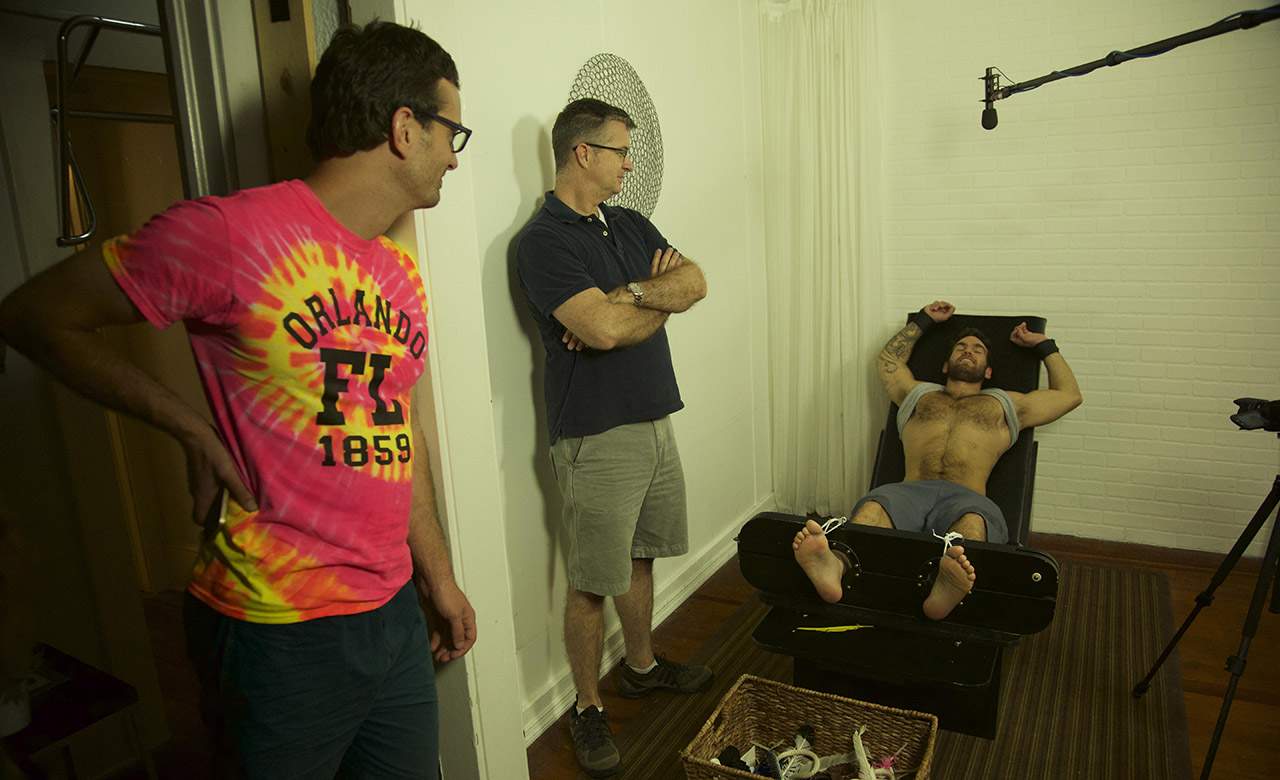Tickled
The competitive tickling conspiracy documentary that needs to be seen to be believed.
Overview
Have you heard of competitive endurance tickling? Neither had David Farrier. The New Zealand journalist came across videos of Adidas-clad men participating in the activity online quite by accident, and was (understandably) fascinated. We've all been sucked in by strange subjects before, but very few internet obsessions turn out like this. Indeed, there's a reason that Farrier decided to pick up a camera and trek from Auckland to Los Angeles with co-director Dylan Reeve to make a doco about the bizarre world he had uncovered.
The result is Tickled, the kind of stranger-than-fiction film best enjoyed by those with as little pre-existing knowledge as possible. That said, because it's also a feature that has to be seen to be believed, it's guaranteed to cause a reaction regardless of how much of the story you've already heard. In fact, part of the documentary's success stems from how it balances the laughs with the cringes, making audiences feel incredulous and infuriated all at once.
As someone who has, in his own words, made a career out of reporting on "the weird and bizarre part of life", Farrier started his investigation by firing off a few emails asking questions about a barely publicised but well-paying tickling contest. After a couple of responses, each one more hostile and homophobic than the last, the journo realised he had become immersed in a strange world in more ways than one. If you thought the idea of pro-tickling was unusual, just wait until you discover the alarming reality behind it. Bullying, exploitation, intimidation, fetishes and fake personas are just the beginning.
In truth, Tickled is about a lot more than its title suggests. In addition to investigating the mysterious company behind the competition and exploring the experiences of others who've turned the touch of a feather duster into something lucrative, the film also serves as a reminder about the unseemly side of our interconnected existence. In that way, it sits alongside the 2010 documentary Catfish, posing queries about modern interactions and examining the ways in which technology can both bring people together and tear lives apart.
Farrier himself proves a vital central figure. Whether he's on-screen guiding what becomes a race for answers, or off-screen narrating his exploits over recreated footage, the journalist manages to maintain a sense of urgency while at the same time keeping things intimate and personal. And it is personal, as anyone who has been keeping up with movie news of late will be aware. Farrier and Reeve are still receiving legal threats from the film's subjects, who have also taken to showing up to screenings unannounced. Astonishingly, that's one of the most straightforward aspects of this compelling and confounding film.





